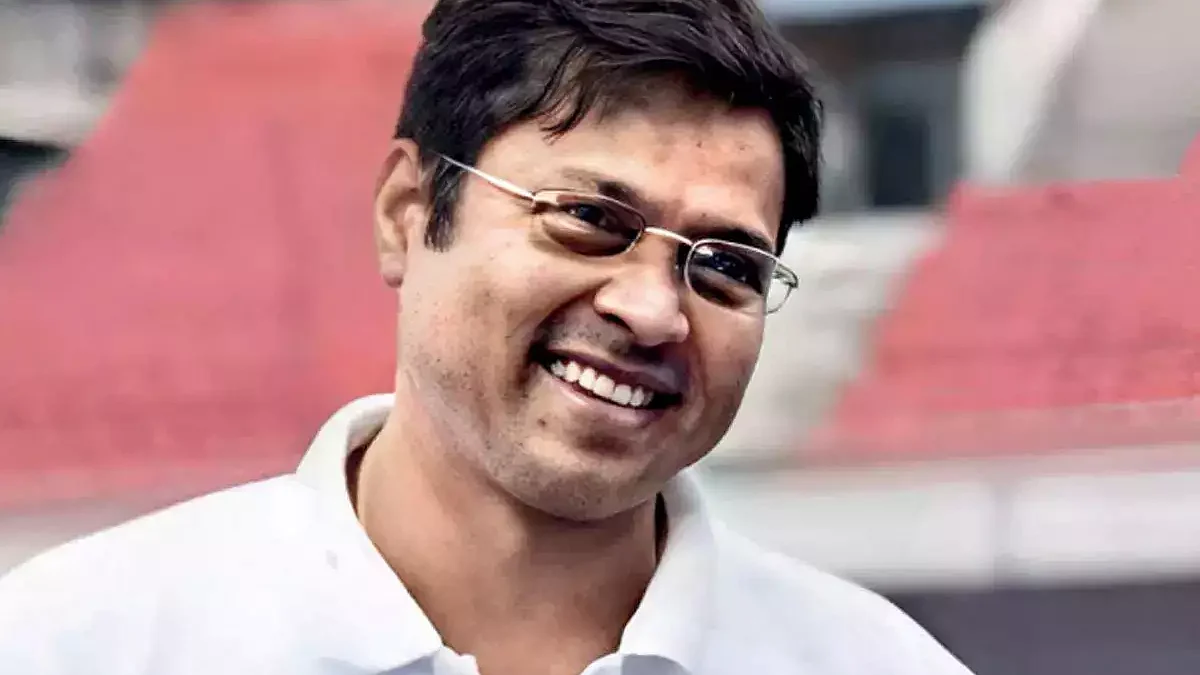Hockey Is Now a Career Option: Hockey India President Dilip Tirkey
Dilip Tirkey, a former India hockey captain and three-time Olympian, took over as Hockey India president last September. Tirkey was one of the finest defenders of his time with 412 international caps

Dilip Tirkey, a former India hockey captain and three-time Olympian, took over as Hockey India president last September. While his home state Odisha has already cemented its position as the hockey capital of India, a major add-on for this edition is the state-of-the-art Birsa Munda Stadium in Rourkela, for which Tirkey gives credit to the state government and the chief minister for meeting the tightline deadline of just 15 months.
Now 44, Tirkey was one of the finest defenders of his time with 412 international caps. He was a member of the gold medallist team at the 1998 Asian Games and represented India in three Olympics on the trot in Atlanta (1996), Sydney (2000) and Athens (2004). He is also a member of the Rajya Sabha.
In an email interview with National Herald, the hockey star-turned-administrator answers questions on the World Cup and the future of Indian hockey. Excerpts:
There is a renewed interest in India’s hockey fortunes after the bronze medal in Tokyo Olympics and a silver in Commonwealth Games. What are India’s chances in this World Cup?
There is renewed interest in not just the Indian men’s team but also the women’s team after a series of good performances. I am very confident the Indian team will come up with a good show this World Cup. They are very well prepared after a good five-match series in Australia and before that, had a successful outing in the Pro League matches held in Bhubaneswar. We also organised a special goalkeeping and dragflick camp for the team.
Odisha has the unique distinction of hosting back-to-back men’s hockey World Cups. How will this edition be an improvement on the previous one in 2018?
The new state-of-the-art hockey stadium in Rourkela is the most significant addition. For the first time in the history of the tournament, there is a Hockey Village for the participating teams to stay during their matches in Rourkela. When you are hosting back-to-back World Cups, there are heightened expectations and Hockey India is confident of delivering yet another memorable tournament.
Do you feel any pressure at the personal level?
Not really. During my playing days, I believed in team work and at Hockey India we have a core team of professionals, who are very experienced in organising top international hockey events in the country. Everyone has worked very hard over the past couple of months to ensure this World Cup is a mega success.
What is Hockey India planning after the World Cup? Is there a five-year or a 10-year roadmap?
It will be a very busy year for us in 2023 with our teams preparing for the Asian Games, to be followed by the Paris Olympics in 2024. We also have our junior teams preparing for the Junior World Cup. We are also working to provide educational support for domestic coaches on par with international hockey standards and creating new avenues for those interested in getting into umpiring and officiating in hockey tournaments.
Are the traditional centres of hockey like Punjab, Lucknow, Bhopal, Karnataka and the North-East being neglected?
All the states you have mentioned have several hockey academies and Hockey India has also helped in setting up high performance centres in these places. We still have several players coming into the national programme from Punjab, Lucknow, Bhopal, Karnataka and the North-East.
What is happening to the school-level and college-level hockey?
With Khelo India Youth and University Games, there is plenty of competitive tournaments in the country attracting youngsters into the sport. There are also all-women leagues being held in different zones.
Are we picking promising players when they are too young and are they missing out on education?
This does happen with a lot of children mostly in urban centres, and it is largely due to parental pressure. In Punjab, Haryana, Odisha and Madhya Pradesh, children are keen to make a career out of hockey. They have seen the kind of benefits they get—jobs, awards, recognition. They are aware that hockey can be a viable career option. Every player in the Indian men’s core group of 33 are employed in good positions in different PSUs.
With so many active sportspersons now getting into sports administration, is the administration improving?
I don’t want to get into any comparison; but as ex-sportspersons, we can and do provide suggestions and expertise on technicalities. In Hockey India, there was already a well-oiled system in place. My interest now is to strengthen the grassroot structure and build a strong pool of players from U-17 categories.
Follow us on: Facebook, Twitter, Google News, Instagram
Join our official telegram channel (@nationalherald) and stay updated with the latest headlines
